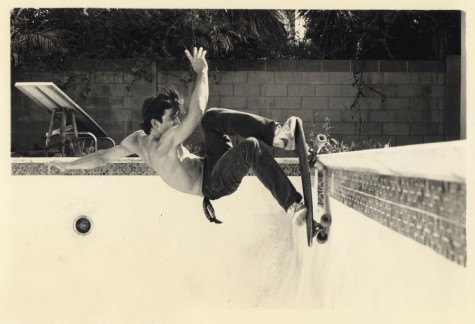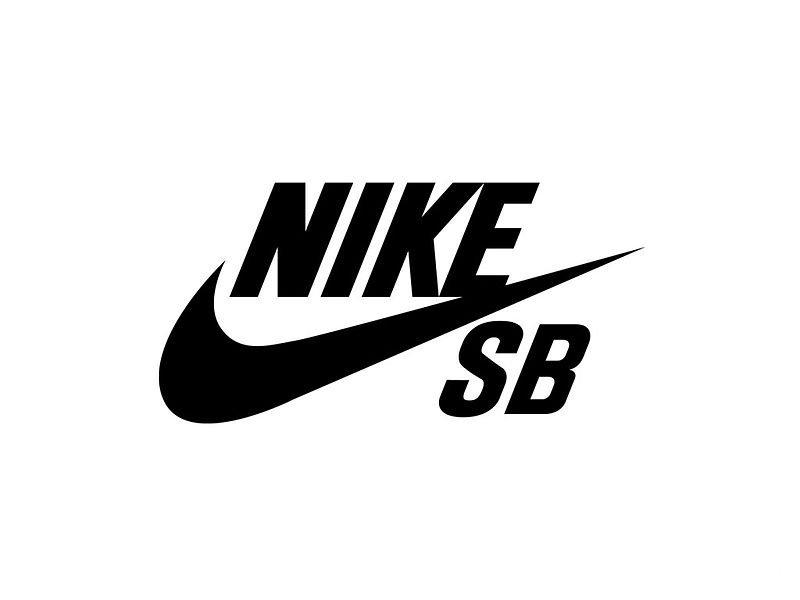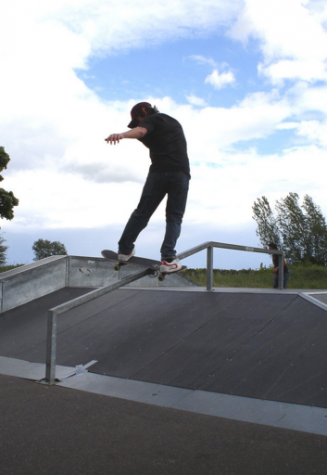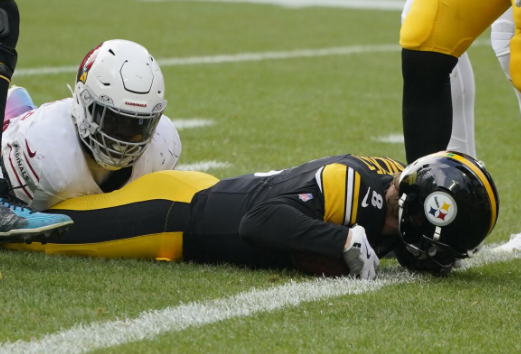Skateboarding: The Art vs. the Corporation
January 12, 2016

This is different compared to what a skateboarding competition holds now.
Today’s “mega” competitions, usually held at giant stadiums such as the UIC pavilion, can hold thousands of people. This gives more people the opportunity to witness the competition. However, your seat is nowhere near the action, and your favorite skater is oblivious to your presence.
Giving such a limited time for skaters to perform creates barriers for spectacular skating. Because of this, pro skaters are more worried about strategy and precision than using originality and a wide range of skills. For example, instead of going for a crazy or new trick, participants might go for an easier common tricks to avoid error or mistakes. Often times, mega competitions consist of skaters doing the same tricks over and over again in a similar order. While this way of thinking might give skaters a better chance of winning, it also takes away the wow-factor watching the skaters.
While today’s “Mega competitions” (funded and promoted by non-skateboarding companies) have made skateboarding more attractive by advertisement, this also dilutes the excitement.

Industries popularizing skateboarding as a cultural influence have also reformed it into a common “sport.”
When you take a look at what skateboarding came from, it is anything but that. Skateboarding originated from the streets, where showing creativity and talent was fuel enough for skaters. Nowadays, professional skateboarders are more concerned with winning reward money. In the athletic world, some sports fans cringe at athletes who strictly do their sport for money and not for their own passion for the game or sport.
Another issue concerns major corporations involving themselves in the skateboarding world to industrialize it. Companies that do not make any skateboards/skateboard accessories have taken control of skateboarding media. Nike even created their Nike SB (skateboarding) line to associate themselves with skateboarding. Items they make are: clothing, shoes, and hats.

However, the only thing that is really needed for skating is a skateboard, comfortable clothing and flat bottom sneakers that won’t fall apart from rubbing against grip tape. Safety equipment such as helmets and pads are optional, but do not affect the way one skates. All the extra “Nike SB hats” and “Nike SB backpacks” are considered unnecessary and irrelevant to the skateboarding community because they do not affect how well someone skates.

Companies of all kinds have profited from skateboarding, but, by letting them do this, it also lets people who have probably never stepped foot on a skateboard control what skateboarding is and do away with the original ideology of skaters as individuals. Non-skaters controlling the skateboarding world doesn’t make sense.















Ryan Murphy • Aug 26, 2019 at 7:38 am
I agree. Skateboarding is known as a street sport where you show your skills and talent by doing different and difficult tricks with passion on it. But with the corporations involvement, now it became more a different thing.